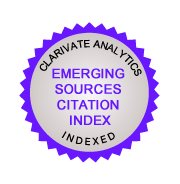MEASURING HUMAN RESOURCE ATTITUDE USING ORGANISATIONAL THEORY OF RELATIONSHIP: THE WAY FORWARD
DOI:
https://doi.org/10.32890/ijms.28.1.2021.9409Keywords:
Organisational theory of relationship, organisational socialisation, attitudes, stage model, human resourceAbstract
This paper argues that classical socialisation theories generally discuss the organisational structures rather than the newcomer’s psychology of relationships in any organisation and contributes to the socialisation stage model. In doing so, this research proposes an Organisational Theory of Relationship (OTR) for understanding the relationships of human resources in any organisation in four stages, namely fascination, contention, adaptation and adoration. The four stages have been examined in an empirical setting based on the data collected from 270 participants. Using the structural equation modelling, the measurement model validity was ascertained and several hypotheses were tested. The findings reveal that all employees in any organisation, intentionally or unintentionally, undergo some or all of the four stages. This model can provide a better insight into the organisational socialisation and individualism of its human resource. It also recommends the organisations to adopt the best possible strategies for uplifting employees’ psychological engagement to utilise their full potentials. The findings of the study can help to understand socialisation in relation to interpersonal relationships and provide a foundation for making socialisation in the organisation better.
















